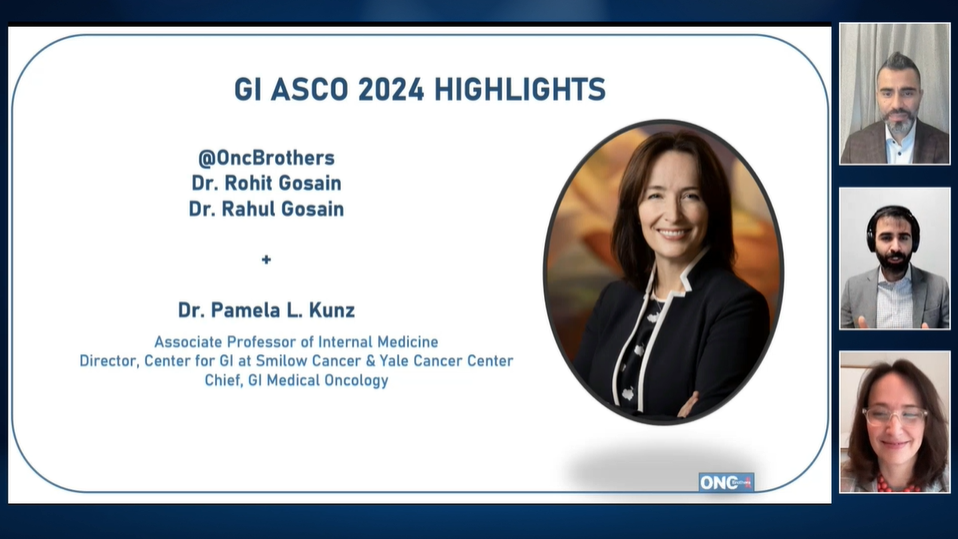Phase 3 Trials of Botensilimab/Balstilimab Move Forward, Despite FDA's Approval Setback
Agenus was advised by the FDA against filing for accelerated approval of botensilimab plus balstilimab for relapsed/refractory microsatellite stable metastatic colorectal cancer without liver metastases.

During an end-of-phase 2 (EOP2) meeting between the FDA and Agenus, the FDA advised against filing for accelerated approval of botensilimab (AGEN1181) combined with balstilimab (AGEN2034) for the treatment of relapsed/refractory microsatellite stable (MSS) metastatic colorectal cancer (mCRC) without liver metastases as the objective response rates (ORRs) observed in the phase 2 trial (NCT05608044) of the combination may not translate to a survival benefit.1
However, an agreement was reached regarding the recommended dose for a phase 3 study of the combination with botensilimab 75 mg given once every 6 weeks for up to 4 doses in addition to balstilimab 240 mg once every 2 weeks for up to 2 years, and the phase 3 study will proceed.
The FDA also recommended that the phase 3 study includes a botensilimab monotherapy arm at Agenus’ discretion.
“Based on the high level of enthusiasm from significant numbers of global clinical experts and the promising clinical activity we have seen in the phase 1 and 2 studies, our commitment to seek all possible pathways to make botensilimab/balstilimab available to patients is unwavering,” said Steven O’Day, MD, chief medical officer of Agenus, in a press release. “This includes exploring opportunities to partner in the United States to accomplish a successful phase 3 trial.”
According to interim topline data from the phase 2 study, patients given botensilimab plus balstilimab at a dose of 75 mg (n = 62) had an ORR of 19.4% (95% CI, 10.4%-31.4%). Notably, investigators are pending confirmation of 2 additional responses in this arm. Here, the 6-month overall survival (OS) rate was 90%.
Among patients treated with the combination at 150 mg (n = 61), the ORR was 8.2% (95% CI, 2.7%-18.1%). The ORR seen with botensilimab monotherapy at a dose of 75 mg once every 6 weeks (n = 38) was 0% (95% CI, 0%-9.3%) and at 150 mg once every 6 weeks (n = 40), the ORR was 7.5% (95% CI, 1.6%-20.4%). For the 33 patients treated with the standard of care (SOC), the ORR was 0% (95% CI, 0%-10.6%).
Colorectal cancer image: © mi_viri - stock.adobe.comNormal

In the phase 2 study, the safety profile of the combination was manageable with no new safety signals reported.
These data from phase 2 build on what was previously reported in a phase 1 trial (NCT03860272) for the treatment of patients with refractory MSS mCRC who did not have active liver metastases. A total of 77 patients were included in this study, and at a median follow-up of 13.6 months, they had an ORR of 23%. In this study, the median OS was 21.2 months, and at 6, 12, and 18 months, the OS rates were 86%, 71%, and 62%, respectively.
“I think the race is on to figure out why patients with active metastatic disease in the liver don’t respond to checkpoint inhibitors generally, and this combination in particular, and what can we do to convert people from active metastatic disease in the liver to no active metastatic,” Benjamin Schlechter, MD, FACS, senior physician at Dana-Farber Cancer Institute, told Targeted Oncology™, in an interview about the phase 1 study.
About the Phase 2 Trial of Botensilimab/Balstilimab
The open-label, multicenter, phase 2 trial of botensilimab combined with balstilimab is evaluating the combination in patients aged 18 years or older with unresectable and metastatic colorectal adenocarcinoma.2 Patients must have tumors that need to be assessed for microsatellite instability-high or mismatch repair-deficient status, and patients should have received at least 1 prior chemotherapy regimen in the recurrent or metastatic setting. Inclusion in the study was also open to patients with a life expectancy of at least 12 weeks, adequate organ function, measurable disease per RECIST 1.1 criteria, and an ECOG performance status of 0 or 1.
Once enrolled, patients were randomized to receive the combination of botensilimab and balstilimab at 1 of 2 dose levels, botensilimab monotherapy at 1 of 2 dose levels, or SOC. In the SOC arm, patients received regorafenib (Stivarga) or trifluridine/tipiracil (Lonsurf; TAS-102).
Full topline data from the phase 2 study are expected to be presented at an upcoming medical meeting.1









